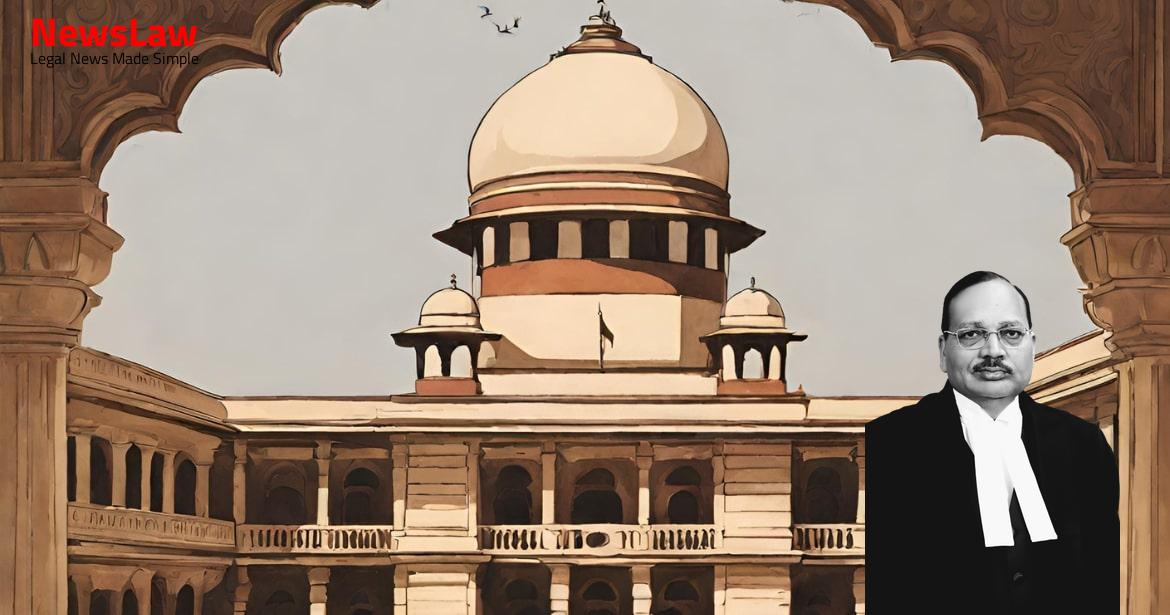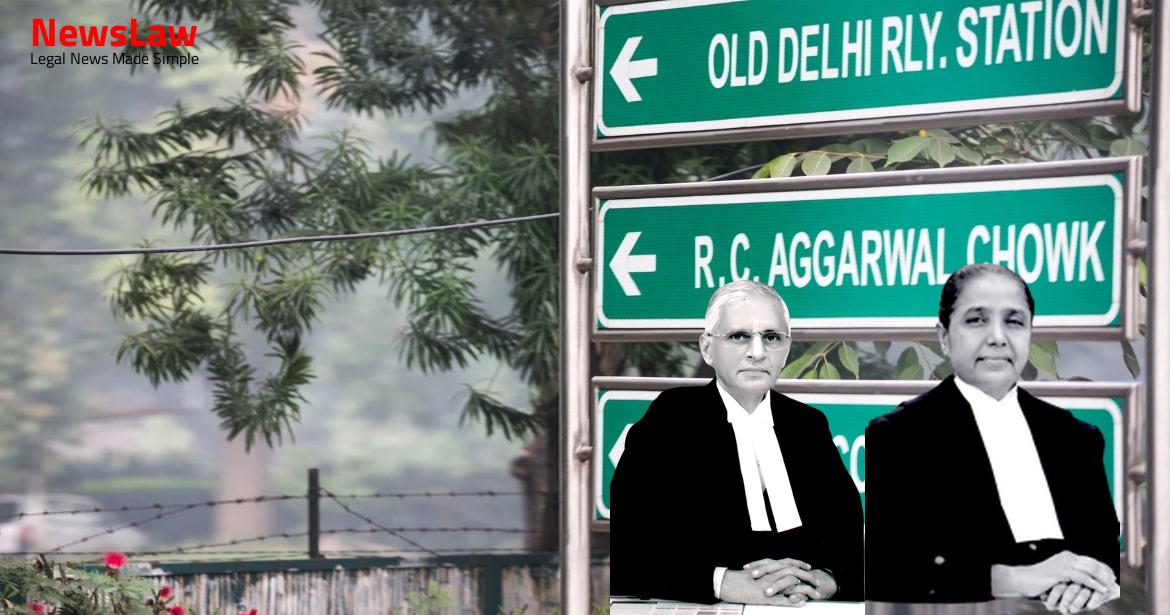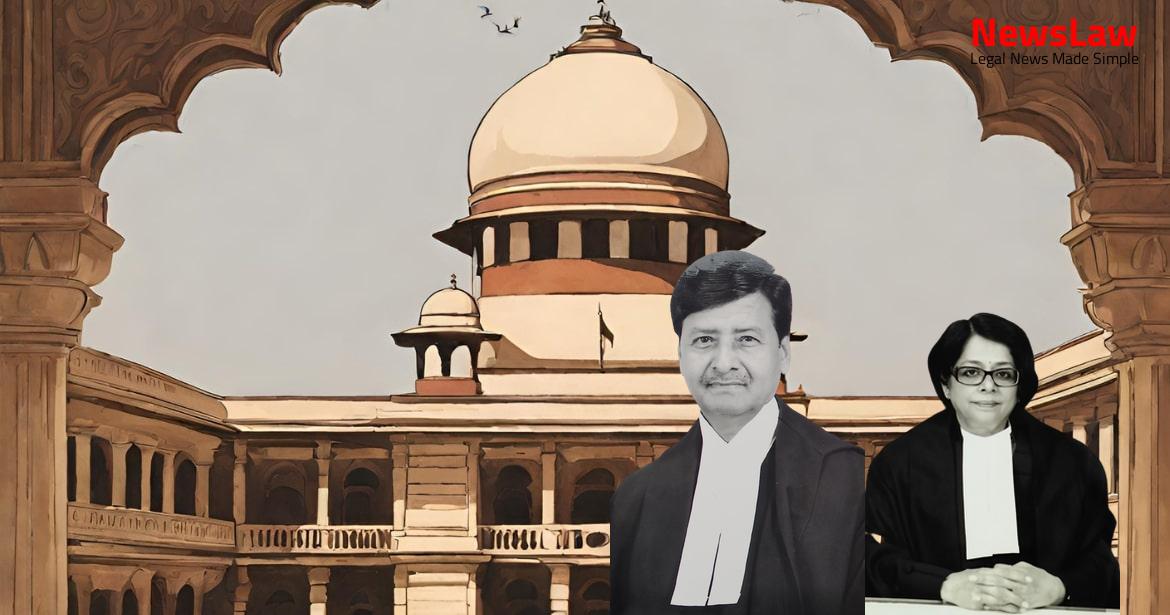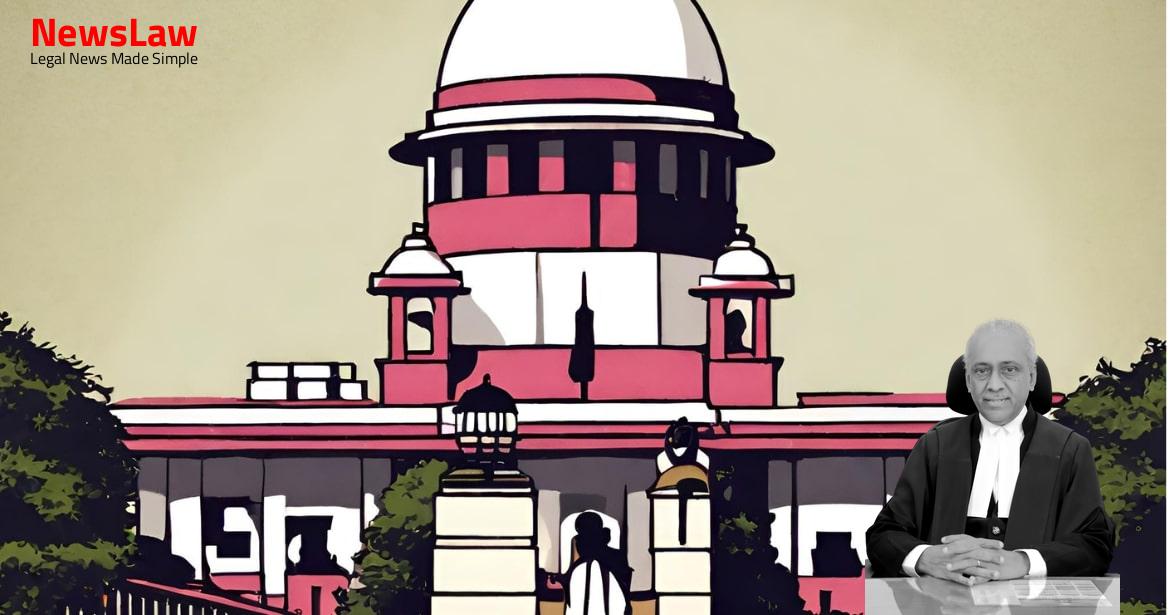In the case of Trust vs. Lessee, a contentious dispute arises over the sufficiency of stamp duty in a lease agreement for a multi-purpose auditorium. The parties, involved in a prolonged legal battle, face challenges regarding the enforceability of arbitration clauses due to stamp duty issues. Stay tuned to unravel the complexities of this case!
Facts
- The respondent No.1 – lessee was required to construct a multi-purpose auditorium with a minimum seating capacity of one thousand persons as per the lease deed.
- Most terms and conditions in the subsequent lease deed dated 12.3.1997 were identical to the terms in the first lease deed dated 31.5.1996.
- An interest-free deposit of Rs.55,00,000/- was to be paid by the lessee and refunded at the end of the 38-year lease period if not extended.
- Between 1997 and 2000, there was little progress in the development of the project on the leased land.
- The appellants challenged the sufficiency of stamp duty on the lease deed dated 12.3.1997, leading to a referral to determine the issue.
- The appellant Trust desired to develop the land and construct a multi-purpose community hall with an office complex.
- The facts giving rise to the appeal involve the Trust, the lessee, and the development of the property for a community hall and Samadhi renovation.
- The appellants filed a suit for non-payment of the balance security deposit by the lessee and interference in lease deed execution.
- An interim injunction was granted by the City Civil Court to maintain the status quo over the property.
- Arbitration was invoked by the lessee after over two years of contesting the suit.
- Negotiations and subsequent execution of a lease deed in 2008 were followed by further renegotiations in 2013.
- A petition under Section 11(6) of the Arbitration Act was filed by the lessees in 2013.
- Various contentions were raised regarding possession, desecration of the Trust’s founder’s Samadhi, and obtaining vacant possession of additional property by the lessee.
- The Registrar (Judicial) of the High Court of Karnataka determined the document in question to be a lease deed and not an agreement to lease, ordering the respondents to pay deficit stamp duty and penalties.
- Respondent Nos. 1 and 2 objected to the Registrar’s report, leading to a court order appointing an arbitrator under Section 11(6) of the Arbitration Act.
- Appellants challenged the court’s decision, arguing that the insufficiently stamped lease deed could not be relied upon for appointing an arbitrator.
- It was noted that the respondents delayed invoking the arbitration clause after a significant period since the lease agreement was executed.
Also Read: Interpretation of Parliamentary Privileges: Immunity from Prosecution for Bribery
Arguments
- Learned Senior Counsel argues that the suit filed by the appellants has already been decreed on 2.3.2015.
- Respondents argue that the agreement was for leasing the property after evicting tenants and getting construction permission from the Corporation.
- Sections 33 and 34 of the Karnataka Stamp Act, 1957 are discussed regarding the impounding of instruments and admissibility of unstamped instruments in evidence.
- Both lease deeds are neither registered nor sufficiently stamped.
- Registrar of the High Court highlighted that the 1997 document was a lease deed, not an agreement, and directed respondents to pay deficit stamp duty and penalty.
- Respondents did not comply with the directions to pay deficit stamp duty and penalty.
- The enforceability of the arbitration clause in the lease deed dated 12.3.1997 is questioned.
- The court refers to the case of SMS Tea Estates Pvt. Ltd. vs. Chandmari Tea Company Pvt. Ltd. to address similar provisions under the Karnataka Stamp Act, 1957.
Also Read: Legal Analysis on Arbitration Petition Limitation Period
Analysis
- Section 33 of the Stamp Act pertains to the examination and impounding of instruments.
- Section 35 of the Stamp Act states that instruments not properly stamped are not admissible as evidence and cannot be acted upon.
- Under Section 35, unless the stamp duty and penalty are paid, the court cannot act upon the instrument, including any arbitration agreement contained within it.
- Any instrument not duly stamped must be impounded by the relevant authority and the necessary duties and penalties must be paid before it can be used as evidence or acted upon.
- Under the Scheme for Appointment of Arbitrators by the Chief Justice of Gauhati High Court, an application under Section 11 of the Act must be accompanied by the original arbitration agreement or a duly certified copy.
- Section 33 mandates courts to examine unregistered instruments for proper stamping and impound if necessary.
- Courts should consider the stamping of documents containing arbitration agreements even if not raised as an objection.
- If the document is not properly stamped, it must be impounded and dealt with according to Section 38 of the Stamp Act, 1899.
- The court cannot act upon an unstamped document or the arbitration clause within it.
- Paying the deficit duty and penalty as per Sections 35 or 40 of the Stamp Act allows the document to be used as evidence.
- The requirement to verify proper stamping is present in the rules of most High Courts.
- Analogous provisions to Sections 33 and 34 of the Karnataka Stamp Act are applicable in this context.
- The Court must impound and handle unstamped documents in accordance with the Stamp Act if deemed necessary.
- Respondents admitted different document versions before City Civil Court and High Court.
- Lease deed dated 12.3.1997 outlined a tenure of 38 years from signing.
- Lessee agreed to obtain vacant possession and secure it by evicting unauthorized occupants.
- Responsibility for sanctioning building plans also taken by respondents.
- High Court erred in relying on insufficiently stamped lease deed and disregarding Registrar’s report.
- Respondents failed to pay insufficient stamp duty and penalty as determined by the Registrar.
- Respondents only produced settlement deeds with tenants in 1998 with no evidence of tenant eviction until 2010.
- Respondents filed application under Arbitration Act after participating in suit proceedings for over 2 years.
Also Read: Analysis of High Courts’ Jurisdiction and Court Orders Under Article 142
Decision
- The impugned judgment and order dated 1.12.2014 passed by the High Court of Karnataka in CMP No.167 of 2013 is quashed and set aside.
- The petition/application filed by the respondents 21 under Section 11 of the Arbitration Act is rejected.
- There shall be no order as to costs.
Case Title: M/S. DHARMARATNAKARA RAI BAHADUR ARCOT NARAINSWAMY MUDALIAR CHATTRAM AND ORS. CHARITIES AND ORS Vs. M/S. BHASKAR RAJU AND BROTHERS (2020 INSC 194)
Case Number: C.A. No.-001599-001599 / 2020



